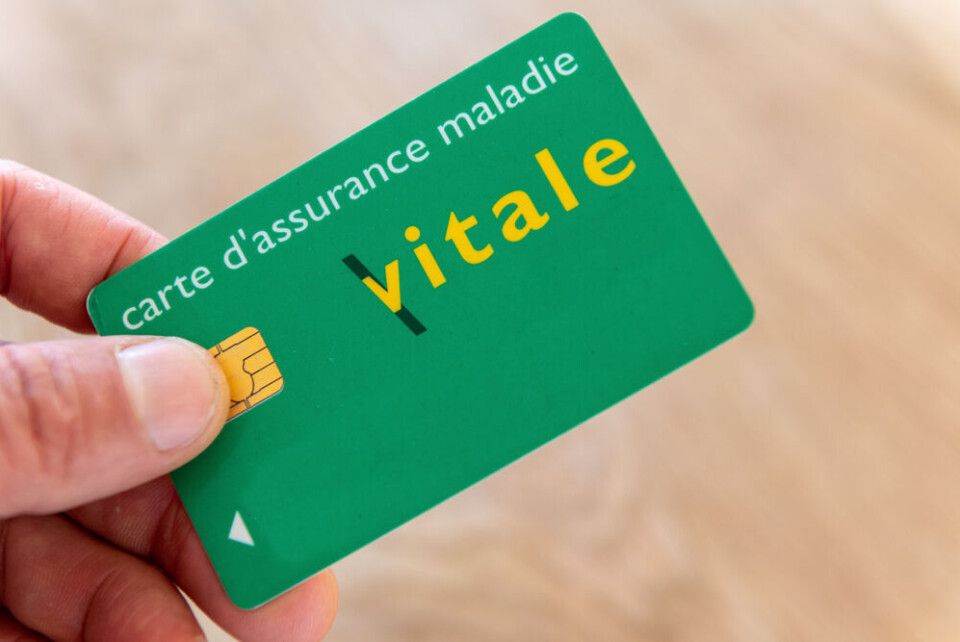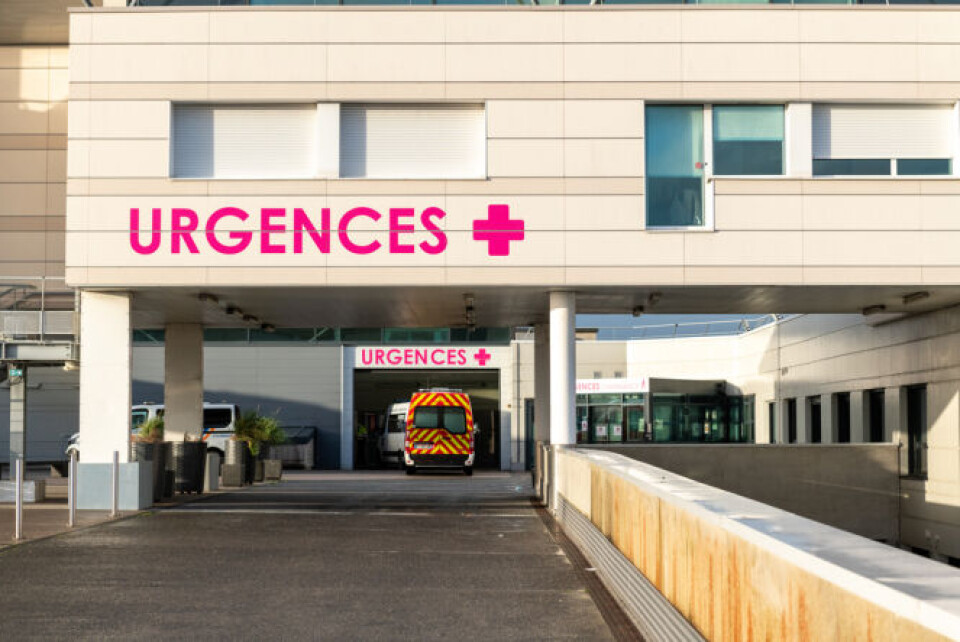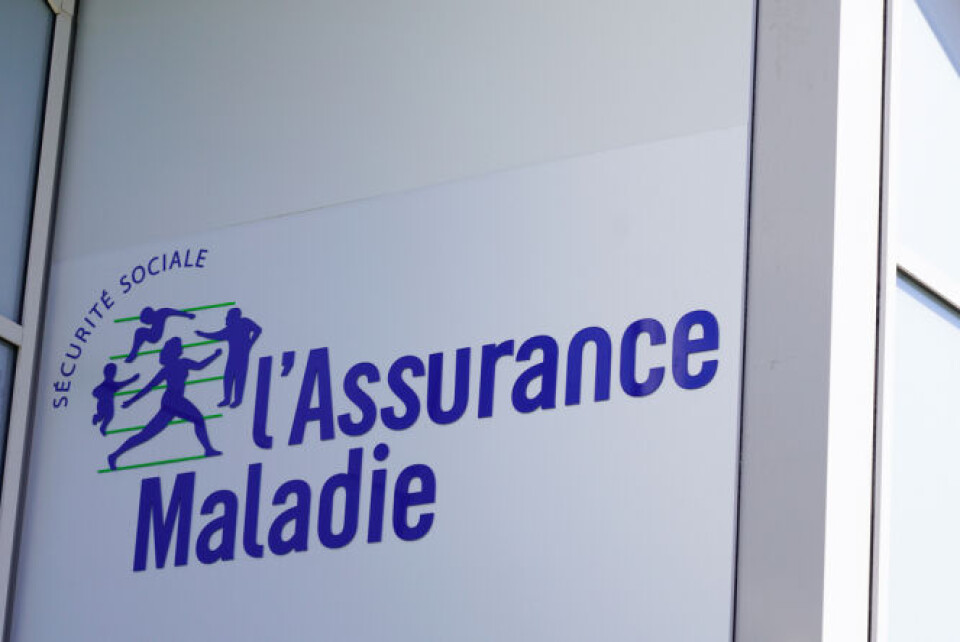-
Explained: how to register a classic car in France
It is relatively straightforward to get a carte grise véhicule de collection for your vehicle
-
How to fit in when you move to France: avoid that ‘expat bubble’
After two decades in central Brittany, Jill Fitzgerald O’Connor wants to help other movers feel part of their new community
-
How to save money on fashion and clothes in France
Growing number of second-hand shops are selling clothes by weight
An overview of the French healthcare system in 2021
High-quality, accessible, and affordable, the French healthcare system is widely considered exemplary and one of the best in the world. Find out what is covered, and how

The quality of healthcare in France is among the highest in the world, with access to the system available to every resident regardless of age, income or status.
However, state healthcare in France is not provided ‘free’ by the state, which is why French law requires all residents to be covered by a form of health insurance.
In most cases, this is provided by the French state’s social security system, known as the Assurance maladie.
The state system however does not pay for 100% of all health costs. Most French residents also purchase top-up insurance from a company or a non-profit-making organisation, known as a complémentaire santé or mutuelle.
What is the difference between the French healthcare system and the system in other countries?

A major difference between the French healthcare system and the UK’s NHS is that in some cases the patient has to pay upfront and then be reimbursed into their bank account.
One exception to the rule is patients on low incomes who are covered by a solidarity top-up insurance called Complémentaire Santé Solidaire (CSS).
This system has been gradually evolving.
For most people in the French health system and with a top-up insurance policy there has, for several years, usually been nothing to pay upfront for prescription medicines in a pharmacy.
The payment for the medicines is made directly by the Assurance maladie and the mutuelle to the pharmacy (the exception being certain medicines that are not refunded, or are poorly refunded, because they are deemed to be low priority or with a lesser medical effect).
In many cases, this also now operates for hospital stays, especially in the public sector. Whether or not there remains a partial bill to pay depends on the level of charges and the level of cover provided by a person’s top-up mutuelle.
While the French healthcare system and the US system are similar in the fact that they rely on their population having medical insurance, in France that insurance is largely paid for by the state (whereas in the US the insurance is mostly private).
French healthcare and state social security
Anyone living in France for more than three months is covered by the state social security system up to a point, with those on the CSS being covered entirely by the state.
Cover is also at 100% for those with certain serious long-term conditions. For care for these, however, this refers to 100% of a standard state tariff (price), and not all doctors are obliged to stick to these.
Read more: Can I enter the French healthcare system with long-term illness?
Membership of the state system provides a fixed percentage rate of reimbursement of different medical acts, for example, 70% of the cost of a visit to a GP, once again based on standard state tariff rates (which many GPs adhere to).
As mentioned, there is also an option to pay for private top-up health insurance which will usually cover all the remaining costs, though this can depend on how high the fees are and how good the mutuelle cover is.
Some 96% of people in France take out top-up policies.
Although not run by the state, they are regulated, and for example, may not factor in pre-existing conditions into their premiums. However, the cost of mutelles does rise with age.
Businesses are by law obliged to offer a subsidised top-up policy to employees.
Read more: French 'top-up' health insurance explained
What is the healthcare system called in France? Assurance Maladie and PUMA
The state healthcare system in France is called the Assurance Maladie and is a key branch of the overall state social security system, la Sécurité Sociale.
However many French people do not distinguish between the two, referring to the health reimbursements system as la Sécu (short for sécurité sociale).
Anyone who is registered with the Sécurité Sociale will be given an identification number which will allow them to access state healthcare provisions.
Employees or self-employed residents pay into the Sécu via their cotisations (business social charges, similar to British National Insurance) which automatically makes them eligible for healthcare.
French healthcare for those that do not pay regular cotisations because they do not work, for example, underwent a major change in 2016 with the introduction of a universal system called Puma that provides a baseline principle of everyone having individual healthcare rights if they are stable residents in France.
What is Puma or Protection Universelle Maladie?
To be a stable resident of France means to have been staying for at least three months, and then, usually spending at least six months of the year in France after that.
Puma stands for Protection Universelle Maladie.
Puma means that economically inactive households who pay no social service cotisations can pay to access the state healthcare system.
The insurance contribution rate is 6.5% of net eligible ‘capital’ income, which includes, for example, investment income, rental income, and capital gains.
However, the eligible income benefits from a substantial allowance, meaning those on modest incomes do not pay.
The determination of costs for affiliation to Puma, called the Cotisation Subsidaire Maladie (CSM) is based on your income tax return.
Read more: Make sense of… France’s Puma health system
How to register for French state healthcare

If you live in France but are not employed...
If you have lived legally in France for three months or more but are not employed, you can register at your nearest Cpam (caisse primaire d’assurance maladie) office to obtain your social security number and obtain health rights under Puma.
You can find your local office via the Ameli website which has a page in English.
If you are a state pensioner of the UK or EU...
However, if you are a state pensioner of the UK or an EU country then you should obtain the S1 from the authorities in your home country, which is presented to the Cpam.
Related: UK S1 health forms of retirees in France delayed by glitch
In this case, no Puma contribution will be due as the home country reimburses France for your care.
If you are employed in France...
If you have a job with an employer in France, your employer will register you with French social security. This will allow you automatic access to the state healthcare system in France.
Those that are self-employed, known as travailleurs indépendants, must also pay social security contributions on the income, similarly to employees.
What documents do I need to register for French healthcare?
To register for healthcare (unless your employer is doing it for you) you will need to show:
- an identity document such as your passport
- proof of your French residency
- proof of address
- your children’s birth certificates if you wish to include minors in your application
- evidence of income if you are applying for Complémentaire Santé Solidaire
Finally, it is strongly advisable to sign up with a named GP who has agreed to take you on (Déclaration de choix du médecin traitant) before accessing healthcare in France.
How does the French healthcare service work?

The French state healthcare system is funded partially by obligatory social security contributions paid by employees, their employers, and self-employed workers, as well as government funding.
When a patient receives healthcare in France they must present their carte Vitale which is proof they are covered la Sécu. This triggers a reimbursement directly from the state health insurance system into the bank account registered to the social security number.
How do I pay at a doctor's appointment in France?
At every doctor’s appointment, visit to the dentist, or even to pick up medicine at the pharmacy, this small green card the size of a bank card is required to prove that you are covered.
The carte Vitale will have a photo of the person covered by the state healthcare on it, as well as their social security number.
It will be used like a credit card in a machine by the doctor to access information about your rights. It will also allow for you to automatically be reimbursed fees paid for healthcare.
Once you have registered for la Sécu, you will be sent a temporary social security number by post followed by a document called an attestation de droits.
You can then apply for your carte Vitale.
If you need to make a doctor’s appointment before you receive your card, you can still use your social security number. You will be given a feuille de soins sheet by your healthcare provider which you must send to your Cpam office to be refunded for any treatment you have paid for.
A digital version of the carte Vitale is being trialled, with a view to rolling out by 2023.
What healthcare is covered by the state system in France?
One of the reasons that France’s healthcare system is highly rated in polls is that it offers a high level of preventative healthcare, as well as covering routine checkups, maternity appointments, hospital visits, and dentistry.
Available services also include the promotion of physical activity and healthy eating, and more recently, mental healthcare.
In September 2021, it was announced that consultations with psychologists for people with a prescription from their doctor would be reimbursed.
How to find a doctor in France

As previously explained, it is important to sign up with a médecin traitant otherwise you risk obtaining lower reimbursements.
Your GP will keep records of your visits and treatments and refer you to see a specialist if required.
If you book an appointment to see a specialist without a referral from your GP the initial appointment may cost more and you will also be reimbursed less.
While doctors in France are not allowed to advertise, you can find details of GPs on the Ameli website.
Doctors of all kinds can also be located via the widely-used internet platform doctolib.
Some GPs have heavy patient loads and can be reluctant to take on new patients, in which case it may help if you are referred by a friend so it is worth asking people you know for their recommendations.
Read more: How can I find an English-speaking GP near me in France?
How much does a doctor's appointment typically cost in France?
Most GPs are self-employed and work either alone or in group practices.
The price of consulting your GP for an adult is €25 if they are in ‘sector 1’, meaning they charge only at the state tariff rate.
Those in ‘sector two’ are able to charge extra, known as un dépassement. In the latter case, the state refund is still only based on the state tariff.
That said, a good mutuelle should still top up the difference.
Specialists tend to charge more than GPs, up to around €50.
Are tourists covered by the French healthcare system?
Temporary visitors to France from the EU/EEA/Switzerland can access state healthcare if they have a European Health Insurance Card (Ehic) or the UK’s new version of this (see below).
What about healthcare in France after Brexit?
Britons living and working in France will still be able to access healthcare covered by la Sécu provided that they are legal residents, in the same way as other residents of France.
It was agreed in the Brexit treaties that British state pensioners in France would be able to continue to access healthcare services via the S1 form.
Short-term visitors to France from Britain, as before, can use a European Health Insurance Card (Ehic) or the new British-issued equivalent the UK Global Health Insurance Card (Ghic) to access state healthcare.
Read more: Your Brexit questions on healthcare in France
How much does France spend on healthcare?

A recent report showed that the French government paid €4,050 per capita for healthcare in 2018.
France is the highest spender on healthcare within the EU, in terms of GDP percentage. It currently spends around 11.5% of GDP, according to a report from 2018.
Only Switzerland (12.3%) spends more within the EU/Efta nations.
Glossary of French healthcare terms
- Une carte Vitale = a card with your social security number giving access to state healthcare
- Une mutuelle = top-up health insurance, to refund the part of costs not repaid by the state system. Technically only policies offered by non-profit-making organisations come under this term, but it is widely used for top-up policies in general. An alternative general term is une complémentaire santé
- Ameli = The French health insurance website
- Une attestation de droits = certificate proving the right to French state health insurance
- Feuille de soins = form proving payment for treatment, used to obtain reimbursements by those with no carte Vitale
- Cpam (caisse primaire d’assurance maladie) = office responsible for state health insurance
- Complémentaire Santé Solidaire (CSS) = top-up insurance provided free by the state for people on low-incomes
- Cotisation Subsidaire Maladie (CSM) = an annual payment into the state healthcare system for economically inactive residents with means over a certain level
- Un médecin traitant = your own family doctor, GP
- Une ordonnance = a prescription
- Puma ( Protection Universelle Maladie) = right to state healthcare cover by virtue of residence for anyone living in France for more than three months
- La Sécurité Sociale ou La Sécu = French health care system
- Travailleurs indépendants = self-employed workers
The Connexion Healthcare in France Help Guide
For more information on healthcare in France, take a look at our Healthcare in France Help Guide, a 64-page booklet of information all about accessing healthcare in France as a resident, second-home owner and visitor.
























